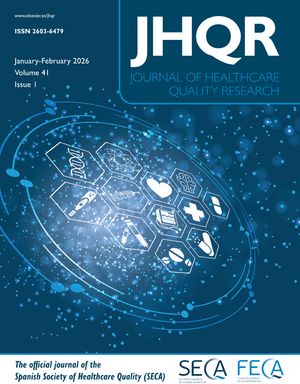El Consentimiento Informado (C.I.) cada vez está más implantado por lo que decidimos estudiar la opinión de los médicos y pacientes sobre él y su proceso de realización.
Material y métodosEstudio observacional, descriptivo y transversal mediante dos encuestas diferentes, de forma personal y telefónica, a 89 profesionales de un Hospital Universitario y a 210 pacientes sometidos a algún procedimiento diagnóstico y/o terapéutico en noviembre de 1998. Se realizó un muestreo aleatorio simple. Los datos fueron analizados mediante la χ2.
ResultadosEl 25,8% de los profesionales consideran que la utilizaci ón de formularios es imprescindible. Aunque el 36% (IC 95%: 26,1-45,9) de los médicos consideran que los pacientes comprenden la información recibida, el 93,4% (IC 95%: 90-96,8) refirieron haberla entendido adecuadamente. El 79,8% (IC 95%: 71,5-88,1) de los médicos refieren ofrecer explicaciones, pero sólo el 44,3% (IC 95%: 37,6-51) de los pacientes confirmaron esta oferta. El 63,3% de los pacientes se quedaron indiferentes tras recibir la información. Según el 61,8% de los profesionales y el 68% de los pacientes, el proceso del C.I. se realiza mediante la lectura del documento por el paciente. Para el 66,7% (IC 95%: 73,1-60,3) de los pacientes el objetivo de los formularios es proteger al médico.
ConclusionesSe encuentran deficiencias en aspectos como la necesidad de los documentos y su utilización, comprensión de los documentos, falta de entrega de los mismos, oferta de explicaciones, persona que lo entrega, proceso de realización, tiempo del que dispone el paciente y objetivo del documento. La información transmitida, en la mayoría de las ocasiones, no causó más ansiedad en los pacientes.
The Informed Consent (I.C.) every time is more implanted so that we decide to study the opinion of the doctors and patient on him and its realization process.
MethodThe study is observational, descriptive and traverse by means of two surveys (personal and phone) to 89 professionals of a University Hospital and 210 subjected patients to some procedure diagnostic and/or therapeutic in November 1998. It was carried out a simple aleatory sampling. The data were analyzed by means of the χ2.
ResultsThe 25,8% of the professionals considers that the use of formularies is indispensable. Although 36% (CI 95%: 26,1-45,9) of the doctors they consider that the patients understand the received information, 93,4% (CI 95%: 90-96,8) they referred to have her appropriately expert. 79,8% (CI 95%: 71,5-88,1) of the doctors they refer to offer explanations, but only 44,3% (CI 95%: 37,6-51) of the patients they confirmed this offer. 63,3% of the patients was indifferent after receiving the information. According to 61,8% of the professionals and 68% of the patients, the process of the I.C. It is carried out by means of the reading of the document for the patient. For 66,7% (CI 95%: 73,1-60,3) of the patients the objective of the formularies is to protect the doctor.
ConclusionsThere are some deficiencies in aspects like the necessity of the documents and their use, understanding of the documents, lacks of delivery of them, offer of explanations, person that gives it, realization process, time of which prepares the patient and objective of the document. The transmitted information, in most of the occasions, it didn’t cause more anxiety in the patients.






